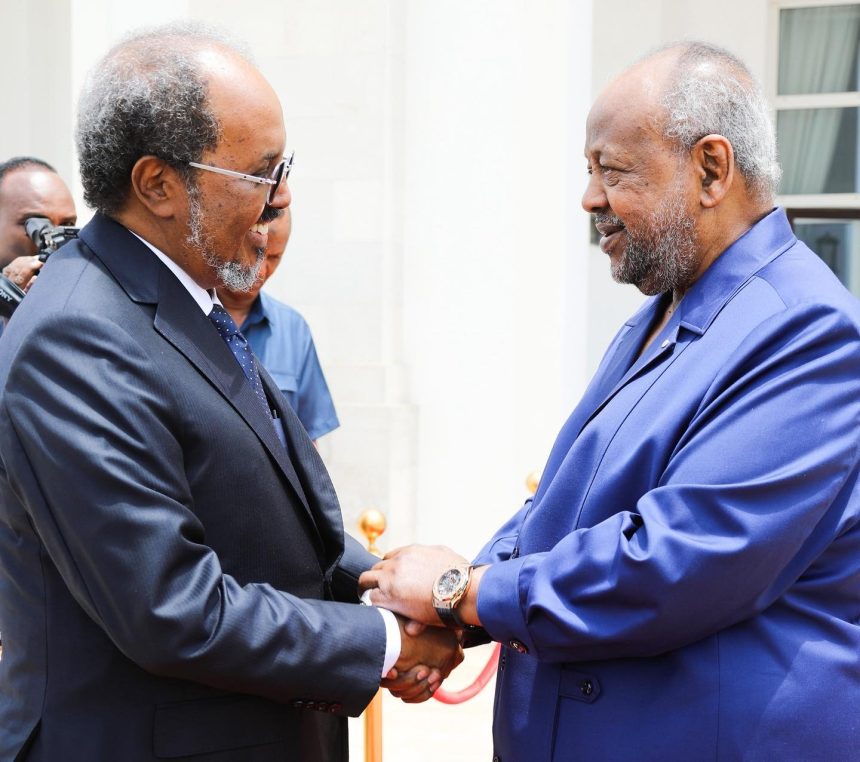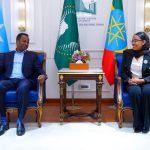Djibouti City — When the political memory of the Horn of Africa recalls its defining transformations, one name stands out: President Ismaïl Omar Guelleh of Djibouti — a statesman who combined vision with conscience.
In the early 2000s, President Guelleh addressed the Somali people with a message that would later shape a turning point in the region’s history:
“I ask for your mercy, your support, and your cooperation. I can help rebuild Somalia — but I need you to work with me.”
Those words went beyond diplomacy. They marked the beginning of a fraternal covenant between two nations bound by blood, destiny, and shared pain — and ignited the birth of Somalia’s Third Republic after years of state collapse and displacement.
Arta: The Gathering That Reunited a Nation
On May 2, 2000, the small Djiboutian town of Arta became the heart of a major Somali reconciliation effort. Nearly 4,000 delegates from across Somalia — politicians, clan elders, civil society representatives, and intellectuals — gathered there under Djibouti’s sponsorship.
Djibouti opened its doors and homes to the Somali delegations for four months. Families hosted guests, and the government mobilized all available resources to ensure the conference’s success. Arta became, for many Somalis, a second homeland at a time when the very meaning of home had been lost.
President Guelleh declared at the time:
“Djibouti is not merely hosting a political conference. It is opening its heart to its Somali brothers out of love and duty. Somalia’s peace is Djibouti’s peace — and the peace of the entire region.”
From Arta to State Rebirth
The Arta Conference produced tangible results that reshaped Somalia’s political landscape.
It led to the formation of a Transitional National Parliament of 225 members, marking the first representative Somali legislature in a decade.
The conference also adopted a Transitional National Charter, outlining a three-year roadmap to rebuild state institutions. Soon after, Abdiqasim Salad Hassan was elected President of the Transitional National Government — the first legitimate Somali leader after ten years of political vacuum.
Leadership Rooted in Responsibility
President Guelleh’s engagement with Somalia was not that of a neighboring head of state, but of a brother who shared the nation’s wounds. He viewed Somalia’s stability as inseparable from Djibouti’s own security and the wider peace of the Horn of Africa.
As Somali President Hassan Sheikh Mohamud would later remark,
“What binds Djibouti and Somalia cannot be washed away by water or cut by any blade.”
Continued Commitment and Cultural Support
Djibouti’s role did not end with Arta. Under President Guelleh’s leadership, support extended into education, culture, and linguistic preservation. Notably, Djibouti backed the establishment of the Regional Somali Language Academy headquartered in Mogadishu — a symbol of unity and shared heritage.
Djibouti also continues its practical contribution to Somalia’s peace through the Djiboutian “Hiil” Battalion within the African Union Transition Mission in Somalia (ATMIS), maintaining a steady commitment to security and reconstruction.
A Legacy of Vision and Integrity
Through his leadership, President Ismaïl Omar Guelleh has left an enduring moral and political imprint on the Horn of Africa. His initiative at Arta did not merely create institutions — it revived hope, restored trust, and set the foundation for Somalia’s recovery.
His call to the Somali people — “Work with me to rebuild your country” — was more than an appeal.
It became a fulfilled promise whose results are still visible today, a testament to one leader’s vision and to the power of fraternity in the service of peace.





